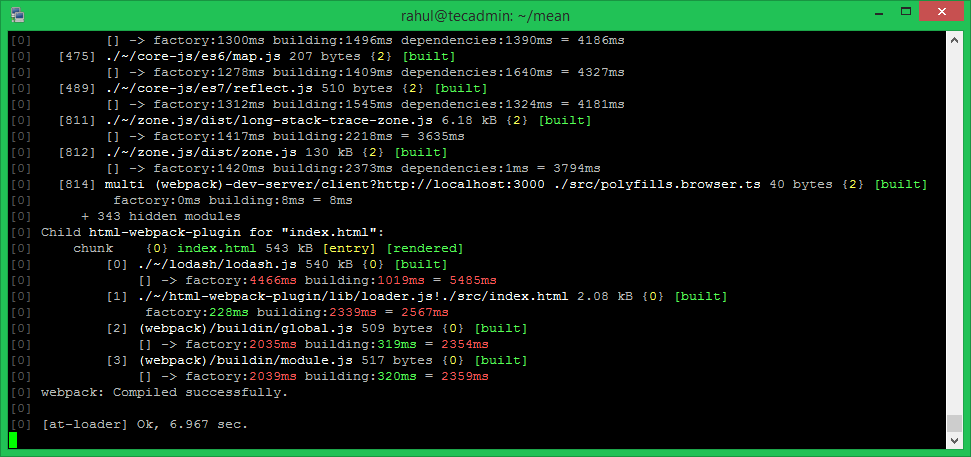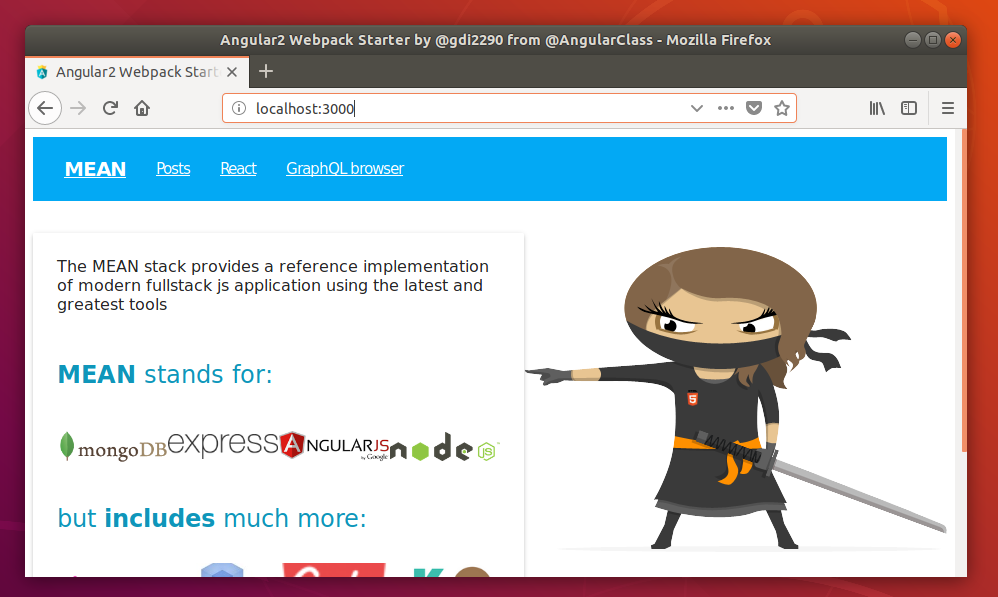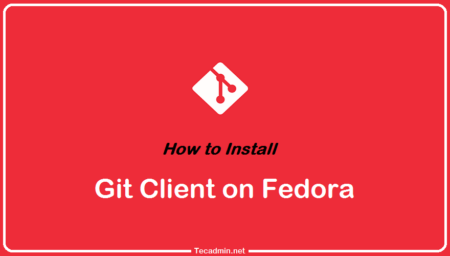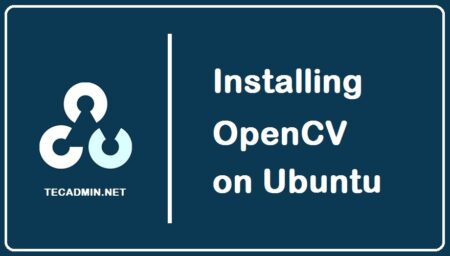MEAN is a full-stack JavaScript-based framework, which accelerates web application development much faster than other frameworks. This tutorial will help you to install Mean stack on Ubuntu, Debian and LinuxMint systems.
MEAN.IO have following requirements, to be pre-installed on the system.
- Node.js
- MongoDB
- Git client
Prerequsities
First of all, install Nodejs and NPM on your system by running the following commands on your system.
curl -sL https://deb.nodesource.com/setup_10.x | sudo bash - sudo apt-get install nodejs
Now execute the following commands to install MongoDB on your system. Visit here for detailed installation instructions about latest mongodb.
sudo apt-get install mongodb mongodb-server
Now install some more required packages for working with Mean.io.
sudo apt-get install git sudo npm install gulp
Setup Mean.io Stack
Let’s clone the mean.io source code from its official git repository and install the required node modules.
git clone --depth 1 https://github.com/linnovate/mean.git cd mean && npm install
Start Application
Now use the following command to start the node development server. This option is not recommended for production use.
npm start
Then, open a browser and go to:
http://localhost:3000





2 Comments
(function (exports, require, module, __filename, __dirname) { import mongoose from ‘mongoose’;
^^^^^^
SyntaxError: Unexpected token import
at createScript (vm.js:74:10)
at Object.runInThisContext (vm.js:116:10)
at Module._compile (module.js:588:28)
at Object.Module._extensions..js (module.js:635:10)
at Module.load (module.js:545:32)
at tryModuleLoad (module.js:508:12)
at Function.Module._load (module.js:500:3)
at Function.Module.runMain (module.js:665:10)
at startup (bootstrap_node.js:201:16)
at bootstrap_node.js:626:3
Thanku for sharing this useful information.. I would like to share something too…
Thinkwik is an expertise driven web and mobile apps Development Company helping businesses achieve their goal through robust and engaging web and mobile presence. To Build real time application, mobile app and website
Node Js Development Company
Android App Development
iOS App Development